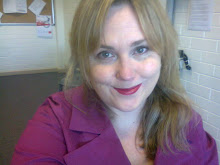 tified. This is the beginning of the book. "Amal reads deep into the night. She reads and lets Anna's words flow into her, probing gently at dreams and hope and sorrows she had sorted out, labelled and put away". I loved Amal as a character. She has so much integrity, but because the world is so imperfect this leads to a passivity and inertia because it is so difficult to act with integrity when all of one's choices seemed not quite right. Amal absorbs herself in the documents of Anna Winterbourne and her grandmother Layla, documents in English, French and a "neat Arabic raq'a script". I loved this too - the intersections of culture as manifest in language.
tified. This is the beginning of the book. "Amal reads deep into the night. She reads and lets Anna's words flow into her, probing gently at dreams and hope and sorrows she had sorted out, labelled and put away". I loved Amal as a character. She has so much integrity, but because the world is so imperfect this leads to a passivity and inertia because it is so difficult to act with integrity when all of one's choices seemed not quite right. Amal absorbs herself in the documents of Anna Winterbourne and her grandmother Layla, documents in English, French and a "neat Arabic raq'a script". I loved this too - the intersections of culture as manifest in language.It's so clever because at the same time as it is an exotic love story between Anna and Sharif and then Isabel and Omar, it also problematises this notion of exoticism (and really of love). There's a moment in the novel where Amal discovers an article by Sharif about the appeal of the East which he sees as a economic solution to the West's problems and also the Orient, a wonderful otherwordly place full of exoticism. Amal jokes that they could republish it now. I found myself wanting to read about this book (discovering this very glamourous photograph of Ahdaf giving a speech) and some people found the romance too much and others found it a wonderful post-colonialistic launching pad for pontificating! (Actually this article was very interesting about the letters of women travellers as a subversive discourse).
The structure was great - I liked the layers, the disparities between the past and present, the gaps in knowledge between the generations. I found myself fascinated by the missing generation, the adult Nur (Anna's daughter and Isabella's grandmother) and Ahmad (Layla's son and Amal's grandfather), their life stories hinted at in just a few sentences.







